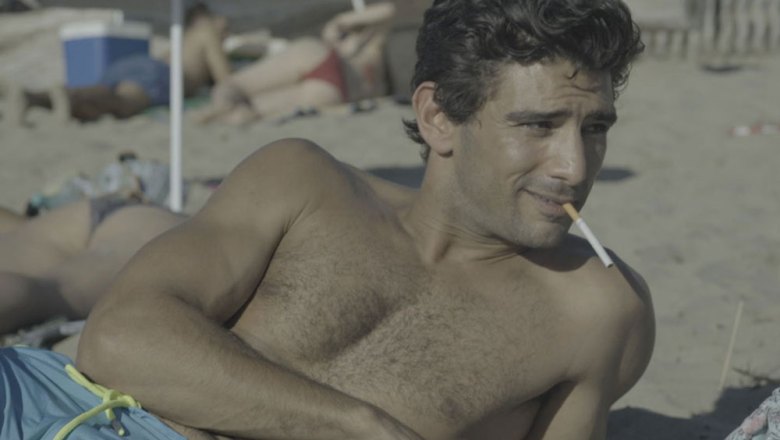This month, we're going to focus on a major contemporary author. This is Chimamanda Ngozi Adichie.

childhood
Born in Enugu, Nigeria on September 15, 1977, she is originally from Abba in Anambra State in southeastern Nigeria. Adichie grew up in an intellectual environment: her father was a professor of statistics at the University of Nigeria, Nsukka (UNN) and her mother was in charge of the school office.
So, following in her father's footsteps, Adichie turned to science when she entered university: she began studying pharmacology in Nigeria. However, she soon changed her path and immigrated to the United States to study communication and political science in Philadelphia, Pennsylvania.
Early yearsin literature

Upon his arrival on the American continent, Adichie will publish his first book which is none other than a collection of poems called Decisions. It was released in 1997, then followed with a play in 1998 called For Love of Biafra – which will be neither more nor less than the first sketches and sources of inspiration for his novel The Other Half of the Sun. Indeed, the latter tells the life of two sisters separated during the Biafran war. He won the Orange Prize for Fiction and the Anisfield-Wolf Book Award. It will also be adapted to the cinema in 2014.
The Other Half of the Sun is the second novel by Adichie, who confirmed her immense success following her first revelation: The Purple Hibiscus, released in 2003. The Purple Hibiscus is also the story of a sibling who seeks to emancipate themselves from the family environment. It mixes politics, domestic violence, religious intolerance and many other themes that will become important in the author's life. The novel was named Best First Book at the 2005 Commonwealth Writer's Prize .
Consecrations
The author published a third book in 2009, a collection of short stories, entitled The Thing Around Your Neck. Then, in 2013, she published the novel that would make her world famous: Americanah. Americanah tells the story of Ifemelu, a Nigerian woman from Lagos who immigrates to the United States to study. It is easy to understand that through Ifemelu we are actually experiencing what the author had to experience when she arrived in the United States: being exposed to racism as she had never experienced it before in Nigeria. Through this story, we travel between Lagos, the North-East of the United States and London, England, where Ifemelu's teenage love, Obinze, has gone to live. It was selected by the New York Times as one of the "10 Best Books of 2013".
During the same year, singer Beyoncé covered a small part of Adichie's speech for her song "***Flawless":
"We teach girls to shrink themselves
To make themselves smaller
We say to girls
"You can have ambition
But not too much
You should aim to be successful
But not too successful
Otherwise you will threaten the man"
Because I am female
I am expected to aspire to marriage
I am expected to make my life choices
Always keeping in mind that
Marriage is the most important
Now marriage can be a source of
Joy and love and mutual support
But why do we teach girls to aspire to marriage
And we don't teach boys the same?
We raise girls to each other as competitors
Not for jobs or for accomplishments
Which I think can be a good thing
But for the attention of men
We teach girls that they cannot be sexual beings
In the way that boys are
Feminist: the person who believes in the social
Political, and economic equality of the sexes"
-> Girls are taught to be small. Girls are told, "You can have ambition, but not too much. You should aim to succeed, but not too much, otherwise you will threaten men." Because I am a woman, I am expected to aspire to marriage. I am expected to keep in mind that marriage is the most important part of my life. Okay, marriage can be a source of joy, love, mutual support, but why are girls taught to want to marry and not boys?
Girls are raised in such a way that they see themselves as competitors, but not for professional purposes or to accomplish things – which could be good – but for the attention of men. Girls are taught that they cannot be sexual beings the way men are.
Feminist: a person who believes in gender equality, politically, economically and socially.

Through these words alone, we can see how feminist Chimamanda Ngozi Adichie is. She has made feminism her personal struggle.
These words chosen by Beyoncé are taken from a TEDx Talk delivered in December 2012. You can find the full conference below:
Still in the feminist vein, Adichie published Dear Ijeawele in 2017. This book is a kind of "manual" where the author proposes a feminist education in fifteen points that should be given from an early age. It has been translated into more than twenty languages.
Chimamanda Ngozi Adichie is a talented woman full of intelligence. As an author, academic and activist, she should still have much to give. In 2017, she was elected to the American Academy of Arts and Sciences, one of the highest intellectual honors in the United States.
To find his works:
http://www.gallimard.fr/Contributeurs/Chimamanda-Ngozi-Adichie




































